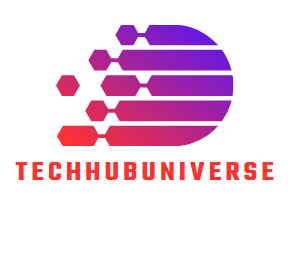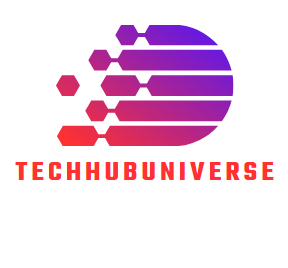The demand for generative AI tools is rapidly increasing in today's fast-evolving technological landscape. Businesses in Marathalli are actively exploring AI-powered applications for automation, data analysis, and customer engagement. However, deploying these AI models into production requires seamless integration with existing systems through Application Programming Interfaces (APIs). Understanding how APIs enable the smooth transition of AI models from development to real-world applications is crucial. If you want to master this integration process, enrolling in an AI course in Bangalore can provide you with the necessary skills.
Understanding APIs in AI Integration
APIs serve as the bridge between AI models and various applications, enabling seamless communication and data exchange. Integrating AI-powered solutions into existing workflows would be complex and time-consuming without APIs. Whether natural language processing (NLP), image generation, or predictive analytics, APIs help streamline deployment. For professionals in Marathalli aiming to implement AI tools effectively, learning API integration through a generative AI course is highly beneficial.
Importance of API-Driven AI Deployment
AI models, including generative AI, are often developed in isolated environments such as Jupyter notebooks or cloud platforms. Businesses need API-driven deployment strategies to make them accessible for real-world applications. APIs allow models to be consumed by different applications, reducing redundancy and enhancing scalability. Mastering API deployment techniques can help professionals in Marathalli implement AI-driven solutions efficiently.
Types of APIs for Generative AI
Several types of APIs are used for AI integration, including RESTful APIs, GraphQL APIs, and WebSockets. REST APIs are the most commonly used, supporting standardised communication between clients and servers. GraphQL offers more flexibility by allowing clients to request specific data fields, making it suitable for AI applications that require dynamic data exchange. On the other hand, WebSockets enable real-time communication for AI-powered chatbots and automation tools. Learning about these API technologies can give professionals in Marathalli a competitive edge in AI implementation.
Challenges in Deploying AI with APIs
Despite their advantages, integrating AI with APIs presents challenges such as data security, latency, and model versioning. Data privacy and compliance with regulatory requirements are essential, especially when dealing with sensitive information. Additionally, managing API latency is crucial for real-time AI applications like chatbots or recommendation engines. Furthermore, updating AI models without disrupting production services requires careful versioning strategies. Addressing these challenges effectively requires expertise.
Best Practices for AI API Integration
To successfully bring generative AI tools to production, businesses in Marathalli must follow best practices for API integration. These include optimising API calls, implementing authentication mechanisms, and ensuring scalability. Caching techniques, rate limiting, and efficient request handling can significantly improve API performance. Securing API endpoints through authentication protocols like OAuth and JWT is crucial for protecting sensitive AI-generated data. By learning these best practices, professionals can enhance the reliability and security of AI-powered applications.
Real-World Use Cases of AI APIs
Many businesses in Marathalli are leveraging AI-powered APIs for various applications. For instance, e-commerce platforms use AI-driven APIs for personalised recommendations, chatbots enhance customer service, and financial institutions deploy fraud detection models. Healthcare providers also use AI APIs to analyse medical images and improve diagnostics. These real-world applications demonstrate how APIs are crucial in bringing AI solutions to production. If you aspire to build similar AI-powered applications, enrolling can be an excellent step toward acquiring the necessary skills.
Cloud-Based AI APIs and Their Benefits
Cloud platforms like Google Cloud AI, AWS AI Services, and Microsoft Azure AI offer pre-trained generative AI APIs that businesses can integrate with existing workflows. These APIs eliminate the need to develop models from scratch, saving time and resources. Moreover, cloud-based AI APIs offer scalability, security, and cost-efficiency, making them an ideal choice for businesses in Marathalli. Understanding how to work with these cloud services can be a game-changer, and professionals can gain hands-on experience.
The Role of DevOps in AI API Integration
Integrating AI into production requires a strong DevOps strategy to ensure continuous integration and deployment (CI/CD). DevOps practices help automate updating AI models, monitoring performance, and managing API workflows. Containerisation technologies like Docker and Kubernetes enable seamless AI model deployment across different environments. Learning DevOps practices specific to AI API integration can significantly enhance deployment efficiency. Professionals in Marathalli can acquire these skills.
Future Trends in AI API Integration
The future of AI API integration is evolving with edge computing, real-time AI, and federated learning. Edge AI allows AI models to run on local devices rather than relying solely on cloud-based APIs, reducing latency and improving performance. Real-time AI enables instant decision-making, which is crucial for fraud detection and automated trading applications. Federated learning ensures privacy by allowing AI models to be trained on decentralised data without compromising security. Keeping up with these trends is essential for AI professionals, and enrolling can help them stay ahead in the industry.
Conclusion
As businesses in Marathalli continue to adopt generative AI technologies, the role of APIs in AI integration becomes more critical than ever. From optimising API calls to implementing security measures and leveraging cloud-based AI services, API-driven AI deployment is essential for modern enterprises. By mastering API integration techniques, professionals can successfully bring AI tools to production, driving innovation and efficiency in various industries. Whether you're an AI enthusiast, developer, or business owner, learning API integration is key to unlocking the full potential of AI in Marathalli.
For more details visit us:
Name: ExcelR - Data Science, Generative AI, Artificial Intelligence Course in Bangalore
Address: Unit No. T-2 4th Floor, Raja Ikon Sy, No.89/1 Munnekolala, Village, Marathahalli - Sarjapur Outer Ring Rd, above Yes Bank, Marathahalli, Bengaluru, Karnataka 560037
Phone: 087929 28623
Email: enquiry@excelr.com



Post a Comment